The European institutions work to adopt measures in the areas of agriculture and rural development, fisheries and all aspects of the common agricultural policy (CAP).
To this effect, we point out below significant events in this agenda:
Next meetings
| Institution | Meetings / Date | |
| European Parliament | 1st and 6th September 2021 | 16th July 2021, Extraordinary meeting |
| European Council | 19th July 2021, Agriculture and Fisheries Council | |
[toc]
6 July 2021, €6.1 billion to promote sustainable fisheries and safeguard fishing communities
Parliament adopted the 2021-2027 fisheries and aquaculture fund to support the blue economy, protect biodiversity and promote international ocean governance.
The new European Maritime, Fisheries and Aquaculture Fund (EMFAF), adopted on Tuesday, encourages member states to invest in making the fisheries and aquaculture sectors more competitive and helping develop a sustainable blue economy, new markets and technologies. Protecting and restoring biodiversity is also among the fund’s priorities. At least 15% of national allocations will have to be spent on actions to foster fisheries control and data collection, and to counter illegal and unregulated fishing.
Specific measures for small-scale coastal fisheries and outermost regions
At Parliament’s request, member states will have to take into account the needs of small-scale coastal fishing and describe what they plan to do to help it develop.
The constraints experienced by outermost regions are also addressed in the new fund, as the additional costs these regions face due to their remote location will continue to be compensated.
To bring younger people into fishing communities, where workers’ average age is over 50, the new EMFAF can finance the first vessel or partial ownership (of at least 33%) for fishermen younger than 40 who have at least five years of experience or have acquired an equivalent qualification.
Other important aspects
- fishermen who have to temporarily stop working to abide with certain conservation measures will be compensated;
- those who have to scrap or decommission a vessel if their activities cease permanently will be supported;
- equipment needed to comply with landing obligations and EU fishing control rules, such as vessel tracking and electronic reporting devices, will be financed.
Actions under the EMFAF should not lead to an increase in fishing capacity, except if it directly results from an increase in gross tonnage necessary for improving safety, working conditions or energy efficiency.
Rapporteur Gabriel Mato (EPP, ES) said: “The new EMFAF was negotiated at a challenging time. The EU fleet lost important fishing grounds because of Brexit, the seafood value chain was paralysed because of the pandemic, and there was pressure to reach an agreement in the WTO on fisheries subsidies. In addition, the young generation is reluctant to enter the profession, CO2 emissions must be reduced in line with the Green Deal and international obligations, and aquaculture production is stagnating, while in third countries the sector is thriving. This fund humbly seeks to contribute to mitigating these challenges.”
More information
Press room – European Parliament
28-29 June 2021, Agriculture and Fisheries Council
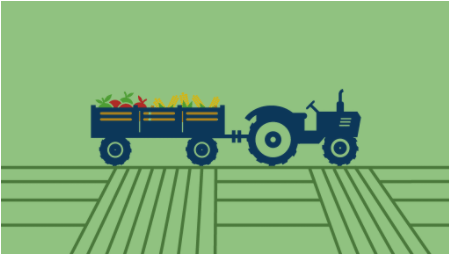
Main results
Agriculture
Reform of the Common Agricultural Policy
The main item on the agenda for this month’s Council meeting was the Common Agricultural Policy (CAP) reform. The Portuguese presidency asked ministers to accept the provisional agreement on the main political issues reached with the European Parliament during inter-institutional negotiations on Thursday and Friday.
Following a discussion of some of the main points, including environmental measures and the social dimension of the CAP, ministers accepted the provisional deal reached with the Parliament on the three regulations that make up the CAP reform package. Further technical work will now be carried out to finalise the legal texts, following which MEPs will be invited to vote on the reform package. The reform will then enter into EU law upon its adoption by the Council.
Market situation
Ministers discussed the agricultural market situation in their respective member states and invited the Commission to provide a response to any concerns. They welcomed the strong recovery of the EU’s food sector following the gradual re-opening of food services and the lifting of the restrictions on the movement of people and goods associated with the COVID-19 crisis. Nevertheless, some member states reported issues in specific sectors and regions that had affected the income of producers. These included Brexit, African swine fever and avian influenza, high feed costs for livestock, and the unseasonably cold weather in early April.
Biological control agents
Ministers submitted a request to the Commission for a study on the situation in the EU regarding the introduction, evaluation, production, marketing and use of biological control agents. They also invited the Commission to put forward a proposal on possible measures if necessary in view of the result of the study.
Biological control agents (BCAs) are a sustainable form of plant pest control that can provide an alternative to the use of chemical products. Nevertheless, there are currently significant differences among member states in terms of their approach to the assessment, use and placing on the market of BCAs. A more harmonised EU framework could therefore increase the availability and guarantee the safe use of this form of pest control.
Setting a protection goal for honey bees
Ministers held an exchange of views on the need to set a Specific Protection Goal (SPG) for honey bees, based on the latest guidance from the European Food Safety Authority (EFSA) regarding the risk posed by pesticide use. In particular, they considered the Commission’s recommendation to set the maximum allowed reduction of bee colony sizes at 10%. Under the proposed SPG, member states would be required to take action if honey bee colonies were demonstrated to have lost more than 10% of their size due to pesticide use. The Commission also proposed that the same SPG apply to the whole of the EU. On the whole ministers agreed on the need to set an ambitious, EU-wide SPG to protect honey bees from pesticides. They also emphasised that the assessments needed to be based on scientific findings, as well as being feasible to implement.
Fisheries
Regulation on Fisheries Control
The Council adopted a general approach on the revision of the fisheries control system. The aim of this revision, proposed by the European Commission in May 2018, is to modernise the rules for monitoring fisheries activities, make them more efficient and effective, and ensure compliance with the Common Fisheries Policy (CFP) and other EU policies. It is the first major revision of the EU’s fisheries control system since 2009. The adoption of the Council’s general approach paves the way for inter-institutional negotiations with the European Parliament.
Ricardo Serrão Santos, Minister of the Sea of Portugal:
“Establishing a Council position on the fisheries control regulation has been a key priority for the Portuguese presidency, and we are very pleased with the result of today’s discussion. The proposed general approach will ensure that fisheries control can be modernised and simplified while also bringing it in line with EU fishing policy.”
Common Fisheries Policy (CFP): state of play and fishing opportunities for 2022
The Commission presented to ministers its annual communication on the state of play of the CFP and on fishing opportunities for 2022. This communication and the ensuing discussion was the first stage of a consultation process between member states, advisory councils, stakeholders and the public on fishing opportunities for 2022, which will run until 31 August 2021.
More information
28 June 2021, Farming ministers confirm CAP reform deal
EU farming ministers have accepted the provisional deal struck with the European Parliament last Friday on the key elements of the common agricultural policy (CAP) reform, thus bringing the proposal a step closer to becoming part of EU law.
The agreement paves the way for a fairer, greener and more performance-based CAP that seeks to provide a sustainable future for European farmers. The new CAP bolsters environmental measures, and also includes provisions to ensure more targeted support for smaller farms and help young farmers enter the profession.
Maria do Céu Antunes, Portuguese Minister for Agriculture:
“Today we have agreed the most ambitious CAP to date. This is a good deal for farmers and for Europe, which will strengthen the European agri-food system, making it more sustainable and fairer for everyone. The agreement provides for a modernised CAP that supports the transition to greener and more climate-friendly farming, increases respect for social and labour rights, and ensures that farmers remain competitive without leaving anyone behind.”
What happens next?
Work will now take place at inter-institutional level on the remaining technical details of the proposed reform, following which it will be formally approved by both the European Parliament and the Council. The new CAP will cover the period 2023-2027; a transitional arrangement agreed in 2020 will continue to apply until then (see below).
Member states will have until 31 December 2021 to submit their draft national strategic plans for approval by the Commission.
More information
Press release – European Council
28 June 2021, Farming ministers reaffirm need for a new approach to protecting honey bees
Today agriculture ministers agreed on the need to set a specific goal to protect honey bees from pesticides.
Member states considered guidance provided by the European Food Safety Authority (EFSA), outlining a new approach to assessing the impact of pesticides on honey bee populations. Specifically, the European Commissioner for Health and Food Safety, Stella Kyriakides, invited ministers to consider an approach that would set the maximum reduction in colony size at 10% across the whole of the EU.
Ministers agreed on the need to increase the EU’s ambitions in terms of honey bee protection while also ensuring that the measures were feasible for member states to implement. On the whole they supported the proposed approach, with some member states calling for the maximum size to be set lower than 10%. Many also stressed the importance of taking the latest scientific advice into account.
Maria do Céu Antunes, Portuguese Minister for Agriculture:
“Today the Council made a significant step towards setting a specific protection goal for honey bees. Honey bees are not only a vital part of our ecosystems, they also help ensure a sustainable future for agriculture by pollinating crops. We are confident that today’s exchange of views between ministers will lead to the introduction of EU-wide measures to protect honey bee populations from the effects of pesticides.”
Background
According to EU law, pesticides can only be used in farming if a comprehensive risk assessment demonstrates that such use will not harm human or animal health or cause unacceptable levels of damage to the environment. The current risk levels are based on the Guidance Document on Terrestrial Ecotoxicology, produced by the European Commission in 2002.
In March 2019, the European Commission asked the EFSA to conduct a review of its 2013 Bee Guidance Document. In the context of this review, a majority of member states expressed their preference for an approach to risk assessment that takes into account the natural variability of honey bee colony sizes. They also emphasised that any new targets for colony size needed to be feasible to implement.
More information
Press release – European Council
10 June 2021, MEPs endorse EU citizens’ call for gradual end to caged farming
Caged animal farming could be phased out in the European Union by 2027, say MEPs.
In their response to the “End the Cage Age” European Citizens’ Initiative (ECI), MEPs asked the EU Commission to come up with legislative proposals to ban caged farming in the EU, possibly already by 2027, following an appropriate transition period and after a solid scientific impact assessment has been carried out. The resolution to this end was adopted on Thursday with 558 votes in favour to 37 against, and 85 abstentions.
Alternatives to cage farming exist and are being successfully implemented in a number of member states, MEPs say. These alternative systems should be further improved and encouraged at member state level, but to ensure a level-playing field for farmers across the European Union, MEPs agreed EU legislation is needed.
Species-by-species approach and properly funded transition
The gradual end of the use of cages should be based on a species-by-species approach that would take into account the characteristics of different animals and ensure that they all have housing systems that suit their specific needs, MEPs say. Before any legislative changes are made, farmers and livestock breeders must be given a sufficiently long transition period and proper support. This could include adequate advisory and training services, incentives and financial programmes to avoid farmers losing their competitive edge and prevent the relocation of EU agricultural production to places where animal welfare standards are lower than in the EU.
MEPs also call for a more comprehensive food policy to support the shift towards a more sustainable food system, but also to prevent small and medium-sized farms from abandoning livestock production and stop its further concentration in the hands of a few large farms.
Same standards for all imported products
A fair trade policy that ensures a level playing field is a precondition for higher European standards, the Parliament says. The Commission and member states should therefore focus more on putting effective controls and customs checks in place to ensure that imported agri-food products meet EU animal welfare standards.
MEPs want all animal products imported into the EU to be produced in full compliance with relevant EU legislation, including the use of cage-free farming systems. They insist existing trade deals should be re-evaluated to ensure that the same animal welfare and product quality standards are met. They also call on the Commission to promote animal welfare internationally.
Ban on unnecessary force-feeding of ducks and geese
MEPs also call on the Commission to come up with a proposal to ban the cruel and unnecessary force-feeding of ducks and geese for the production of foie gras.
More information
25 May 2021, Increased controls and more conservation efforts in the NAFO Regulatory Area
On Tuesday 25 May, the Committee on Fisheries confirmed the political deal with the Council establishing new conservation and enforcement measures for fisheries in the NAFO Regulatory Area.
The agreement, backed by almost unanimity (27 votes in favour, none against and one abstention), will allow for the quick transposition into the UE legal framework of the legally binding rules adopted by the Northwest Atlantic Fisheries Organisation (NAFO) in its annual meetings of 2019 and 2020.
Conservation
The new measures include a complete ban on fishery for Greenland shark (Somniosus microcephalus) in the NAFO Regulatory Area, as well as measures to minimize incidental catch and mortality of this endangered species. When catch alive, Greenland sharks shall be released in a manner that causes the least possible harm.
Controls
The agreed text introduces into EU rules the definition of fishing vessel used by NAFO. This will allow European control and enforcement authorities to work in line with other NAFO contracting parties and to improve the information flow between the Member States’ fisheries authorities, the Commission and NAFO Secretary.
Finally, the regulation acknowledges the role of EFCA in the coordination of inspection means deployed within the NAFO Joint Inspection and Surveillance Scheme.
“NAFO Convention has very demanding and tight conservation and enforcement rules, which is vital to protect very sensitive species such as the Greenland shark, the most long-lived known vertebrate. The EU should always push for the adoption of rules that match the ambition of its Common Fisheries Policy’s goals and of international instruments such as the UN Sustainable Development Goals”, rapporteur Isabel Carvalhais (S&D, PT) stated.
More information
Press release – European Parliament
Recommended bibliography
More information
EUROPEAN AGENDA: Agriculture, Livestock Farming and Fisheries (4)
EUROPEAN AGENDA: Agriculture, Livestock Farming and Fisheries (3)
EUROPEAN AGENDA: Agriculture, Livestock Farming and Fisheries (2)
EUROPEAN AGENDA: Agriculture, Livestock Farming and Fisheries (1)


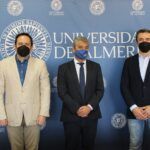
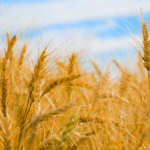
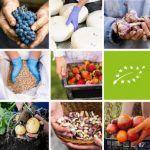
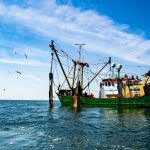
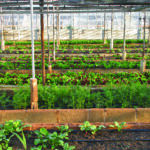
Leave a Reply